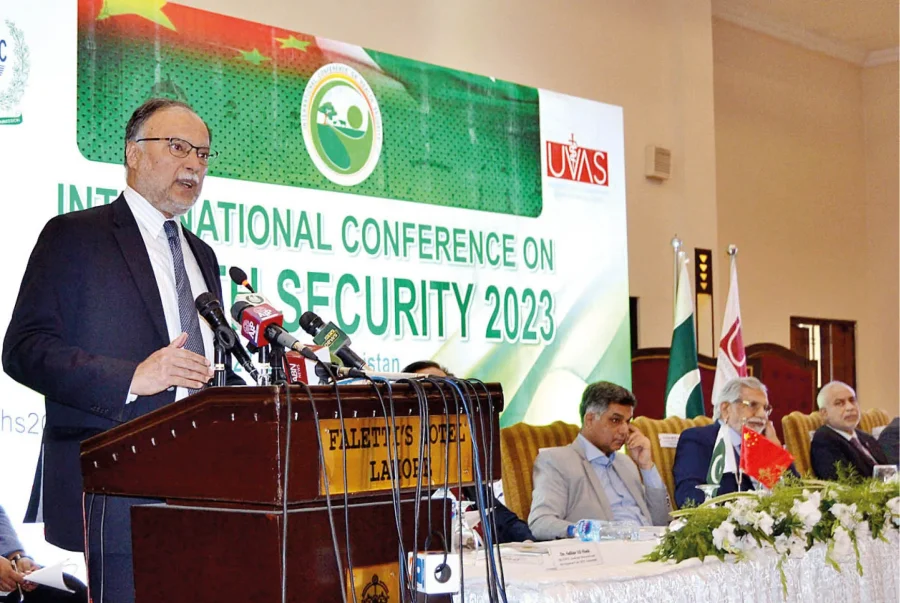Federal Minister for Planning, Development and Special Initiatives Prof. Ahsan Iqbal on Tuesday called for strong industry-academia synergy to foster industrial productivity for enhanced exports and ensuring socio-economic development in the country.
He was addressing an international conference on Health Security organized by University of Veterinary and Animal Sciences (UVAS) at a local hotel, where HEC Advisor Lt. Gen. (Retd) Muhammad Asghar, Provincial Livestock and Dairy Development Secretary Muhammad Masood Anwar, UVAS Vice Chancellor Prof. Dr. Nasim Ahmad, University of Education (UoE) VC Prof. Dr. Talat Naseer Pasha, Fatima Jinnah Medical University’s VC Prof. Dr. Khalid Manzoor Gondal, Director General CPEC (HEC) Dr. Safdar Ali Shah were also present.
Federal Minister added that as an agrarian country, Pakistan needed to promote agriculture and livestock sector to ensure food security keeping in view the increasing population that was estimated to be 330 million by year 2050.
Prof. Ahsan Iqbal said, “We have to utilize the available knowledge, skills and resources in an effective manner that will definitely expedite development process in every sector. The universities and research must play their role in the national development by bringing forth innovations while using modern technology.”
Though Pakistan was 5th largest milk producing country and also among top ten countries of world with regard to yield of rice, wheat, sugarcane and other agri produces, its per acre yield was very low and its livestock growth was also slow, just because Pakistan lagged behind use of modern technology and methods in agri and livestock farming, he maintained.
The government, he said, started initiatives like UK Knowledge Platform and US Knowledge Corridor under which Pakistani researchers/students would learn modern techniques for 10 years and return back with innovations to be implemented in various sectors in the country.
By adopting modern technology and methods in agriculture, livestock and dairy sectors, Pakistan could capture the global markets of halal meat and milk especially the Middle East, he hoped.
Prof. Ahsan Iqbal said, Pakistan had no dearth of talented and management skills people, who could help pull the country out of current problems by playing their due role. He was of the view that at least ten years were needed for the success of a policy for which continuity of socio-economic policies were of great importance.
“Pakistan’s 75-year history shows that we have made strong policies, however, we are behind South Korea, Malaysia, Thailand, Turkey and other countries in terms of policy consistency.—APP










